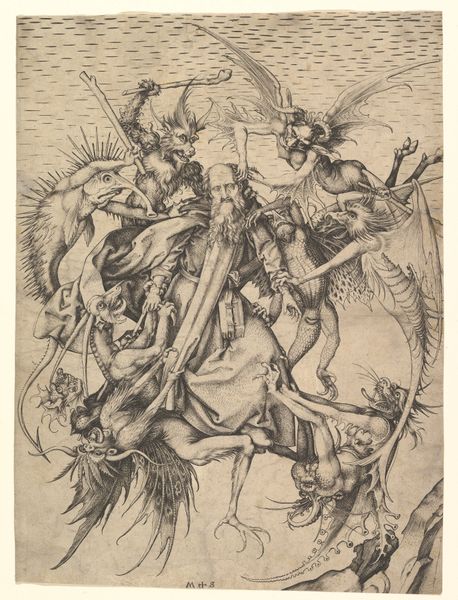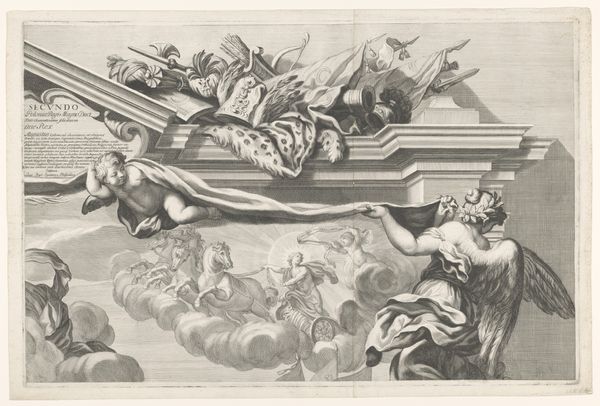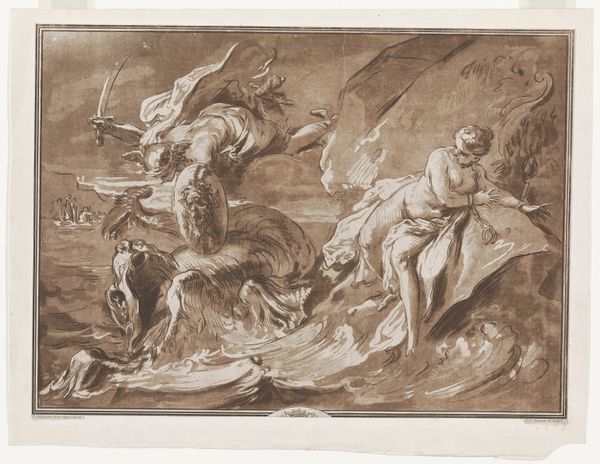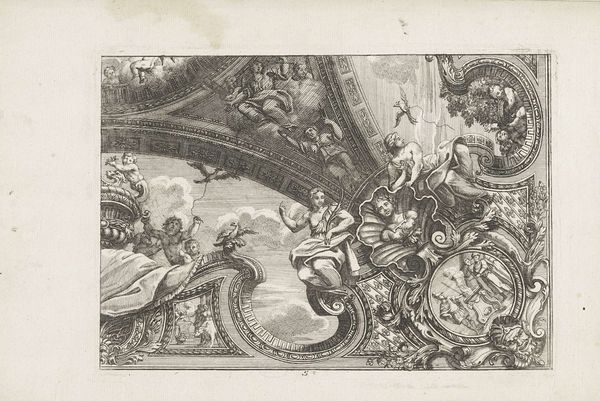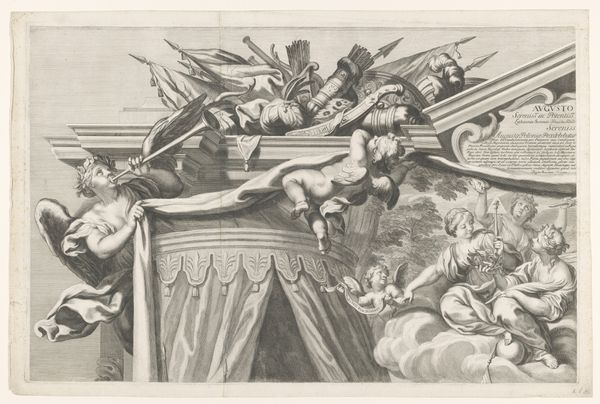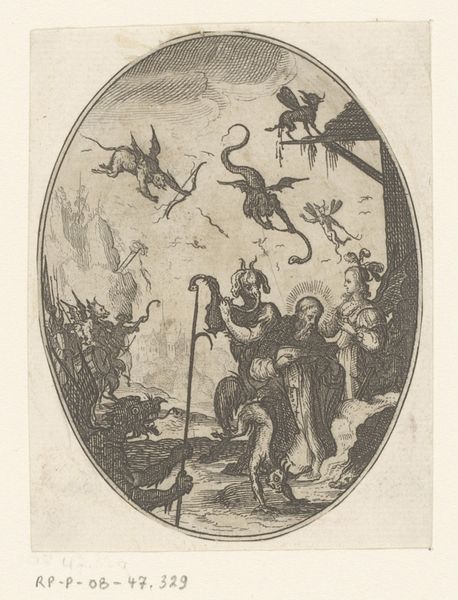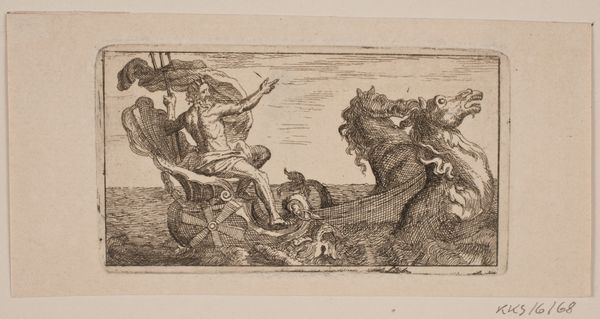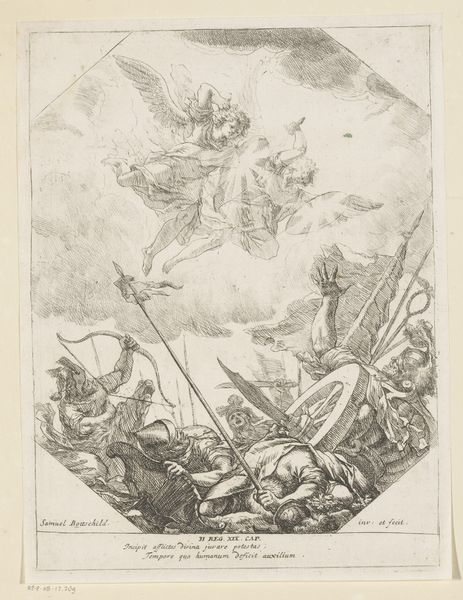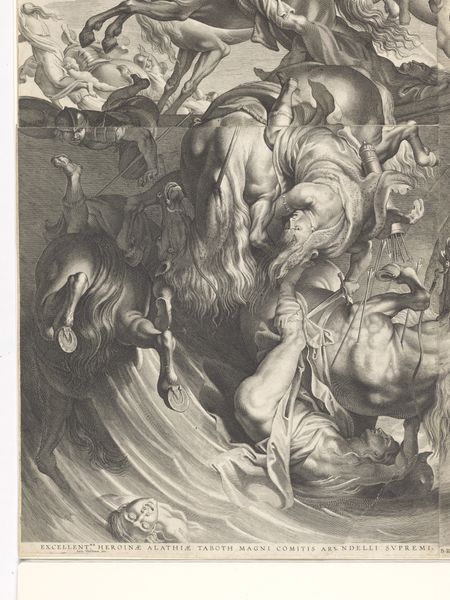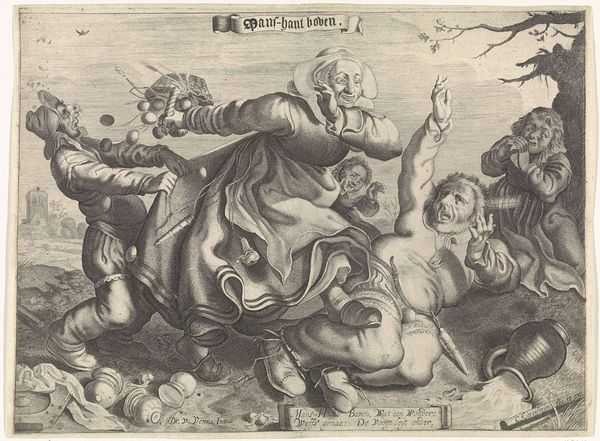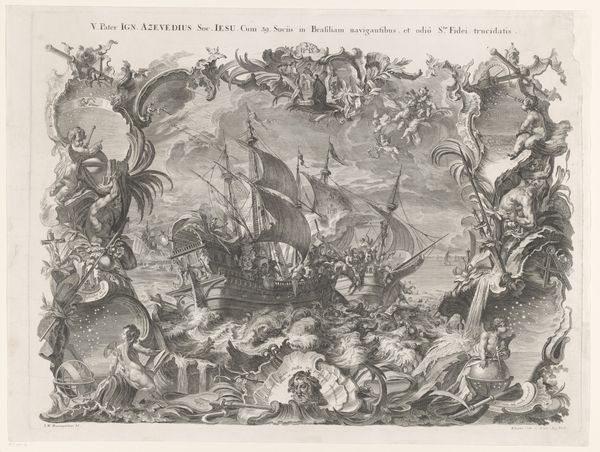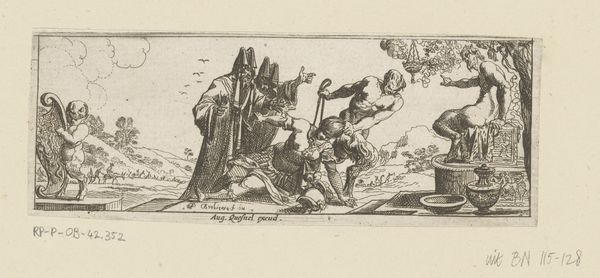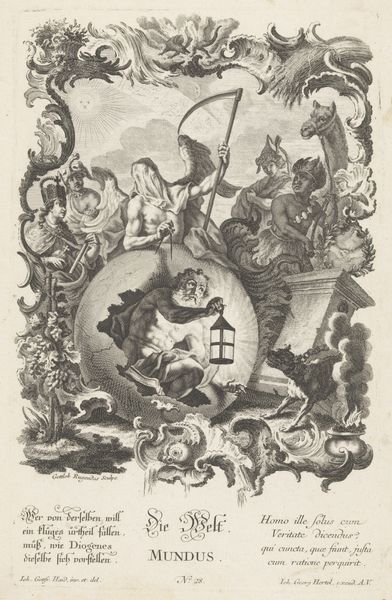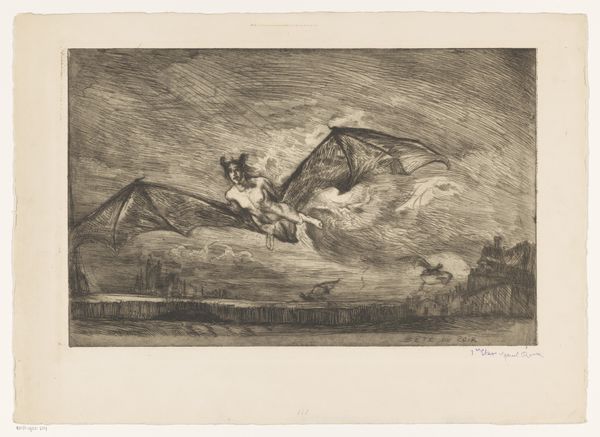
etching
#
portrait
#
allegory
#
etching
#
landscape
#
romanticism
#
history-painting
Dimensions: height 441 mm, width 542 mm
Copyright: Rijks Museum: Open Domain
This print, Vader Tijd toont herinneringen aan Vivant Denon, was made by Baron Dominique Vivant Denon, who lived from 1747 to 1825. As an etching, the artwork begins with a metal plate, likely copper or zinc. The artist would have coated the plate with a waxy, acid-resistant substance called a ground. Using a sharp needle, the artist would then draw through the ground, exposing the metal beneath. The plate is then immersed in acid, which bites into the exposed lines, creating grooves. The longer the plate sits in the acid, the deeper the lines become, and the darker they will appear in the print. After removing the ground, the plate is inked and wiped clean, leaving ink only in the etched lines. Dampened paper is then pressed against the plate, transferring the ink and creating the print. The many portraits and the background of the print, which depicts a landscape, suggest the amount of work that went into the final image. Etching, like other printmaking techniques, allowed for multiples of an image to be produced and distributed widely, contributing to a visual culture tied to wider social issues of labor, politics, and consumption.
Comments
No comments
Be the first to comment and join the conversation on the ultimate creative platform.
